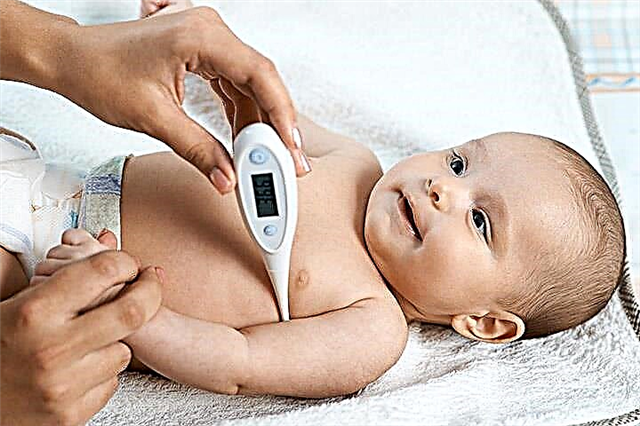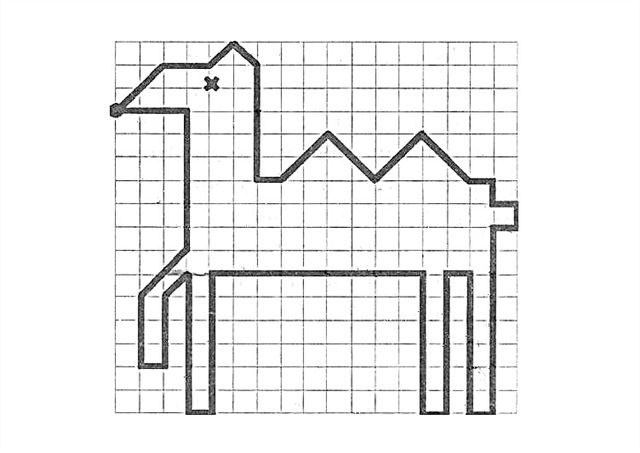Absence of stool in a newborn is very common. Many mothers use tummy massage, enemas and recipes for folk remedies to trigger it. These actions do not always lead to positive results, because before thinking about how to cause a chair in a baby, you first need to find out the reason for its absence, and only then take appropriate measures.

The baby is crying
How does a baby's intestines work?
After birth, the body of a newborn baby begins to gradually adapt to new living conditions. For several months after birth, most of the baby's internal organs are still forming and developing.
The organs of the digestive system can adjust their functioning for a long time. In the maternity hospital, for the first time, a baby can poop meconium on the first or second day after birth.
After the first feeding, a certain microflora begins to form in the intestines of a newborn baby, food is gradually absorbed by the body, and the gastrointestinal tract learns to empty itself. It is for these reasons that the indicators that are considered the norm for adults cannot be applied to infants.
Babies who are breastfed can have stools 6-10 times a day or 1-2 times a week. If the child does not poop for a day or two, this is considered the norm, since the reason for this is the complete assimilation of mother's milk by the child's body.
Infants who are bottle-fed tend to poop daily, but the number of bowel movements is slightly less than when breastfeeding. This is because formula milk is more nutritious than breast milk and takes longer to digest.
Additional Information. Komarovsky states that a breastfed baby can have stools once every five days, which is normal.

Child's intestines
Signs and symptoms of constipation
The main thing to pay attention to is the general condition of the baby and the consistency of feces.
How to understand that a baby has constipation:
- The child is capricious all the time and cries a lot;
- The baby behaves very restlessly during bowel movements: he often strains, but this does not give any results, there is a grimace of pain on his face, attempts, screaming;
- The newborn has gas but still has no stool;
- Each attempt to empty the intestines is accompanied by crying and restless movements of the baby;
- With constipation, feces have a solid consistency: it can be in the form of peas, or its first portion is very dense, followed by a mushy mass of waste;
- The intestines are not emptied completely;
- The baby has not had a chair for 3 days;
- The child sleeps restlessly, refuses to eat and cries a lot;
- The baby constantly pulls his knees to his chest.
All of the above symptoms will tell parents how to understand that the baby has started constipation.
Note! The manifestation of one or two of the above symptoms does not mean that the baby has constipation, but if there are several signs at once, you can be sure of the diagnosis and you should consult a doctor to prescribe treatment.

The baby has a tummy ache
Causes of constipation
When breastfeeding
Breast milk is considered ideal nutrition for a newborn. It contains all of the most important nutrients that are essential for good growth and proper development. A newborn has no stool simply because he has nothing to excrete - breast milk is completely absorbed by the body. If the baby is feeling well, he is gaining weight and does not cry during bowel movements, but the baby does not have a chair for 2 days, there is no need to worry.
There are times when the lack of a chair can be a real problem. The reasons for the fact that there is no chair at all in an infant on gv may be as follows:
- Premature birth, prematurity of the baby;
- Insufficient enzymes to digest breast milk
- Non-compliance with the diet by a nursing mother.
Important! If a nursing mother consumes a large amount of cheese, fatty cottage cheese, fresh sweet pastries, drinks a lot of coffee or strong tea per day, then the child's risk of constipation is much higher. Also, the reason that a newborn child is a day without a chair may be the introduction of certain foods into complementary foods. In this case, you should understand the rules for introducing complementary foods.

Lactation
With artificial feeding
The following factors can affect the appearance of constipation in a child eating an artificial mixture:
- Incorrectly selected adaptive mixture;
- Frequent change of infant formula for feeding;
- Lack of fluid in the body;
- Dysbacteriosis;
- The transition to artificial nutrition, as a result of which the intestines will react to unfamiliar food with constipation;
- Lack of maturity of the digestive system.

Baby drinks from a bottle
No stool when mixed feeding
The causes of constipation in newborns who are on mixed feeding:
- Parents could not find the perfect mixture for their child, because his digestive organs are already experiencing stress from such a sharp change in nutrition;
- The baby is overfed or, conversely, limited in portions, which directly affects the amount of stool;
- In the infant's body, the water balance is disturbed;
It is worth considering! For artificial or mixed feeding, the baby should be given clean water.
- Mom's inappropriate diet - a nursing mother should understand what foods she can eat and what not.
Constipation classification
Constipation in newborn babies can be divided into the following types:
- Functional. Such constipation occurs more often than others, it happens precisely because of non-observance of dietary rules, dysbiosis, and disturbances in the functioning of the central nervous system. It can be easily cured with massage and digestive functions.
- Organic. It arises due to the pathology of the development of organs and systems of the child, among which there are both congenital anomalies and acquired disorders. Treatment of this type of constipation comes down to one thing: first, you should identify the cause that provoked it, and eliminate it, and then deal with the consequences of constipation.
- Carryover. This is a mild form of constipation in newborns, which can appear due to the use of foods that fix it, prolonged exposure to the hot sun and other factors. As a rule, it does not need treatment, since the exclusion of the cause that provoked constipation will lead to the normalization of the baby's stool.
- Psychological. Such constipation occurs for psychological reasons and is usually associated with potty training. Therefore, newborns cannot have a psychological stool disorder.
Rules for the introduction of complementary foods for constipation
If a child often suffers from constipation, all parents should adhere to certain rules for introducing complementary foods:
- It is better to start complementary feeding with small doses - 1 / 2-1 tsp per day;
- When introducing each new product into the child's diet, carefully monitor the reaction of the child's body to it;
- Foods that cause constipation should be excluded from the diet;
- Give products only warm;
- The baby should sit in a highchair while eating;
- Do not start complementary foods with multi-component foods;
- If the baby suffers from constipation, start complementary foods with mono-component vegetable purees.
In case of problems with stool in a child, parents should know not only how to determine constipation in their baby, but also what products should not be given to him if the problem exists:
- Semolina;
- White bread;
- Pork;
- Fatty cottage cheese;
- Bananas;
- Potatoes;
- Fresh bread, pastries.
The following products will help solve the problem of constipation:
- Oat groats;
- Buckwheat;
- Sunflower oil (add to porridge from eight months);
- Apples;
- Kefir;
- Apricots;
- Yogurt;
- Dried fruits;
- Vegetables (squash, broccoli, cauliflower, pumpkin)

Child eating mashed potatoes from a spoon
When to see a doctor
There are situations in which you should urgently consult a doctor, namely:
- If, with constipation, bleeding appears from the anus;
- If the child is unable to poop and looks very agitated, crying and screaming loudly (this indicates that he or she has a severe stomach ache).
- If constipation lasts more than 2 days, and it cannot be eliminated with a cleansing enema;
- If the baby has colic and abdominal pain, appetite is disturbed, he cries all the time.
Preventive actions
Recommendations to help normalize the stool of a newborn baby:
- Observe the correct diet. If the baby is on artificial feeding, then the on-demand feeding regime will not work. Formulas are absorbed by the body much longer than breast milk, and overfeeding contributes to constipation.
- Spread the crumbs on the tummy before each feeding so that the accumulated gas can escape from the intestines. The prone position will strengthen the muscles of the abdominal wall and improve the function of the sphincters and intestinal motility.
- Massage the baby's abdomen before meals with guards. In a clockwise direction, stroke the baby's tummy in the intestinal area. Bend the legs at the knees and bring them to the tummy, press lightly (1-2 seconds). This will help the digestion of food and the passage of gas.
- Give clean water to the baby between feedings.
Constipation in a newborn can be both harmless and dangerous. Therefore, you cannot go to extremes: ignore the problem or self-medicate the child. It is much better to consult a pediatrician or pediatric proctologist who will help identify the cause of constipation and tell you how to eliminate it.



